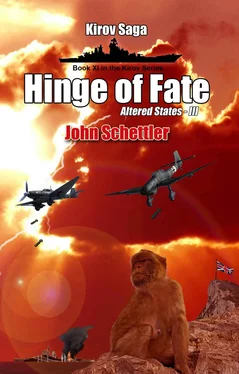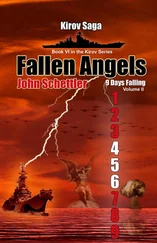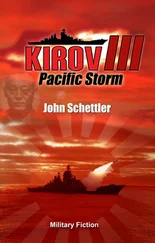John Schettler - Altered States -Volume III. Hinge of Fate
Здесь есть возможность читать онлайн «John Schettler - Altered States -Volume III. Hinge of Fate» весь текст электронной книги совершенно бесплатно (целиком полную версию без сокращений). В некоторых случаях можно слушать аудио, скачать через торрент в формате fb2 и присутствует краткое содержание. Жанр: Альтернативная история, на английском языке. Описание произведения, (предисловие) а так же отзывы посетителей доступны на портале библиотеки ЛибКат.
- Название:Altered States -Volume III. Hinge of Fate
- Автор:
- Жанр:
- Год:неизвестен
- ISBN:нет данных
- Рейтинг книги:3 / 5. Голосов: 1
-
Избранное:Добавить в избранное
- Отзывы:
-
Ваша оценка:
- 60
- 1
- 2
- 3
- 4
- 5
Altered States -Volume III. Hinge of Fate: краткое содержание, описание и аннотация
Предлагаем к чтению аннотацию, описание, краткое содержание или предисловие (зависит от того, что написал сам автор книги «Altered States -Volume III. Hinge of Fate»). Если вы не нашли необходимую информацию о книге — напишите в комментариях, мы постараемся отыскать её.
Altered States -Volume III. Hinge of Fate — читать онлайн бесплатно полную книгу (весь текст) целиком
Ниже представлен текст книги, разбитый по страницам. Система сохранения места последней прочитанной страницы, позволяет с удобством читать онлайн бесплатно книгу «Altered States -Volume III. Hinge of Fate», без необходимости каждый раз заново искать на чём Вы остановились. Поставьте закладку, и сможете в любой момент перейти на страницу, на которой закончили чтение.
Интервал:
Закладка:
John Schettler
Altered States — Volume III. Hinge of Fate
Part I
“Nothing in this world is hidden forever. The gold which has lain for centuries unsuspected in the ground, reveals itself one day on the surface. Sand turns traitor, and betrays the footstep that has passed over it. Fire itself leaves the confession, in ashes, of the substance consumed in it… Look where we will, the inevitable law of revelation is one of the laws of nature: the lasting preservation of a secret is a miracle which the world has never yet seen.”
Wilkie CollinsChapter 1
The Faroe Islands was a lonesome outpost on the wild and windy frontier that marked the boundary between the Norwegian Sea and the Atlantic Ocean. A place that aspired to be nothing more than a quiet backwater settlement of fishermen and sheep herders, it had become a vital watch on those contested waters, a border outpost in a sea of war that would soon prove to be a hinge of fate.
Presently under the sovereignty of the Kingdom of Denmark, the small island group had been chosen as the meeting place between two nations that now stood in the darkening shadows of war. The tall brown cliffs of the islands were crowned with broad green pastures, where sheep grazed in unknowing bliss. At places, soaring spires of rock rose like stony sails along the ragged coast, and pristine falls of water plummeted to the sea in pearly white columns. Small hamlets crowded the coastline in sheltered bays, the bright red and blue rooftops of the buildings adding a splash of color to the pastoral scene.
Some said the hardy folk that lived there had first come from the Viking outposts in the seas around Ireland, while others claimed that the settlers first came from Norway and Scandinavia. They were called the Eyja-Skeggjar, the Island-Beards of old, doughty, dour faced men with hands as hard as stone. Following the invasion of Denmark by Nazi Germany, the Faroe Islands were occupied by British troops in Operation Valentine, on April 12, 1940.
Two destroyers, Halvant and Hesperus, formed the vanguard of British occupation, politely arranging a meeting with the Danish Prefect, Carl Aage Hilbert. The next day the Royal Navy cruiser HMS Suffolk arrived at Torshavn, the seat of authority on the island archipelago, bringing Frederick Mason, the appointed British Consul, along with 250 Royal Marines. A passing protest was duly filed, but then the locals welcomed the British, realizing that their fate could be a good deal worse if German Falschirmjaegers were landing that day in place of the British troops.
Churchill made the announcement to the House of Commons just as the operation was getting underway: “We are also at this moment occupying the Faroe Islands, which belong to Denmark and which are a strategic point of high importance, and whose people showed every disposition to receive us with warm regard. We shall shield the Faroe Islands from all the severities of war and establish ourselves there conveniently by sea and air until the moment comes when they will be handed back to Denmark, liberated from the foul thralldom into which they have been plunged by German aggression.”
The British quickly set up a naval base at Skalafjor?ur, a craggy outpost just south of the main Faroe Island near Torshavn, where they established their headquarters in the old fortress of Havnar Skansin. Naval guns were emplaced there for defense. The garrison was beefed up when the Royal Marines were replaced by 500 Lovat Scouts from Scotland, landing from the transport ship Ulster Prince. Just west of the main island, an airfield was constructed on Vagar Island, and heavily fortified. While the base was under construction, a long lake adjacent to the site served as a kind of water aerodrome, where seaplanes could land to deliver supplies and personnel. The base would allow the British to keep watchful eyes in the air over the vital passage to the Atlantic, a windy frontier outpost that was ever vigilant against the rising threat of the Kriegsmarine.
It was here, at the fledgling R.A.F. Vagar, that the meeting between Admiral Tovey and the Russians would be held. Tovey had been wise enough to say nothing to Dudley Pound of the startling revelations discovered by Alan Turing in the dusty archives of Bletchley Park. Instead he focused on the necessity of establishing a high level friendship and understanding of cooperation between the Russians and England, and he made his appeal directly to the Admiralty, saying he was in receipt of a message pointedly requesting his presence, and his alone, at the meeting to be arranged on the Faroe Islands.
Admiral Pound fluttered that British Admirals were not negotiators and diplomats, but men of war, and the prospect seemed in doubt due to his opposition, until a quiet knock on the door delivered a message from Churchill himself. Sergie Kirov had communicated directly with the Prime Minister, and asked, in no uncertain terms, that Tovey and Volsky make the first official contact concerning the matter. It was said that Admiral Volsky was now carrying a most important message, and Tovey was specifically named as the recipient.
Kirov anchored off the small islet of Gasholmur, seeing the proud silhouette of HMS Invincible and three destroyers waiting just south of the sheer rocky outcrop known as Tinholmur, rising over 200 meters above the sea. Admiral Volsky, Fedorov, and Nikolin took the Admiral’s launch up a long, narrow fiord that led them to a muddy landing where a small concrete quay protected a tiny harbor. They stepped ashore, greeted by an honor guard of Royal Marines to escort them to the meeting site at a simple home near the airfield. It was a warm, comfortable place, with chairs arranged around a hearth where the glow of a fire cast its welcoming heat and light on all present.
Tovey was there with his translator and a few other officers, and they all stood to offer a cordial greeting as the Russians came in. “I have the very great pleasure to meet with you again,” said Tovey, shaking Volsky’s hand.
After smiles, handshakes, and an offering of hot tea, the men seated themselves, whereupon Tovey turned and asked every other man in his party to leave the room. “I shall be happy to rely on the translation provided by your mister Nikolin,” he said, “as I have no doubt that he will faithfully communicate the essence of what we must now discuss with one another.”
Volsky smiled, appreciating the candor and gesture of good will on Tovey’s part, but also perceiving something more in the dismissal of the other men. Better this way, he thought. This British Admiral wants to get down to business, and so shall we.
“Well Admiral Volsky, the last time we met under rather trying circumstances, and though we were not quick to accept your offer of support at that time, the actions you took during the engagement in the Denmark Strait did not go unnoticed, or unappreciated by the British government.”
“We were pleased to offer any assistance we could,” said Volsky as Nikolin translated. “I only wish we could have done more, but we remained uncertain at that time as to how much intervention would be wise, given the fact that I was flying the colors of a neutral state. While the weapons we employed could certainly not have been overlooked by anyone present, particularly the unfortunate German sailors we were forced to fire upon, we believe our ship was never properly identified by the German navy during that engagement.”
“All the better if that is the case.” Tovey rubbed his hands. “As to those weapons you speak of, they proved most startling. We have never seen such advanced application of rocketry, both in the role of an anti-ship weapon as well as air defense. It was truly astounding.”
Читать дальшеИнтервал:
Закладка:
Похожие книги на «Altered States -Volume III. Hinge of Fate»
Представляем Вашему вниманию похожие книги на «Altered States -Volume III. Hinge of Fate» списком для выбора. Мы отобрали схожую по названию и смыслу литературу в надежде предоставить читателям больше вариантов отыскать новые, интересные, ещё непрочитанные произведения.
Обсуждение, отзывы о книге «Altered States -Volume III. Hinge of Fate» и просто собственные мнения читателей. Оставьте ваши комментарии, напишите, что Вы думаете о произведении, его смысле или главных героях. Укажите что конкретно понравилось, а что нет, и почему Вы так считаете.












